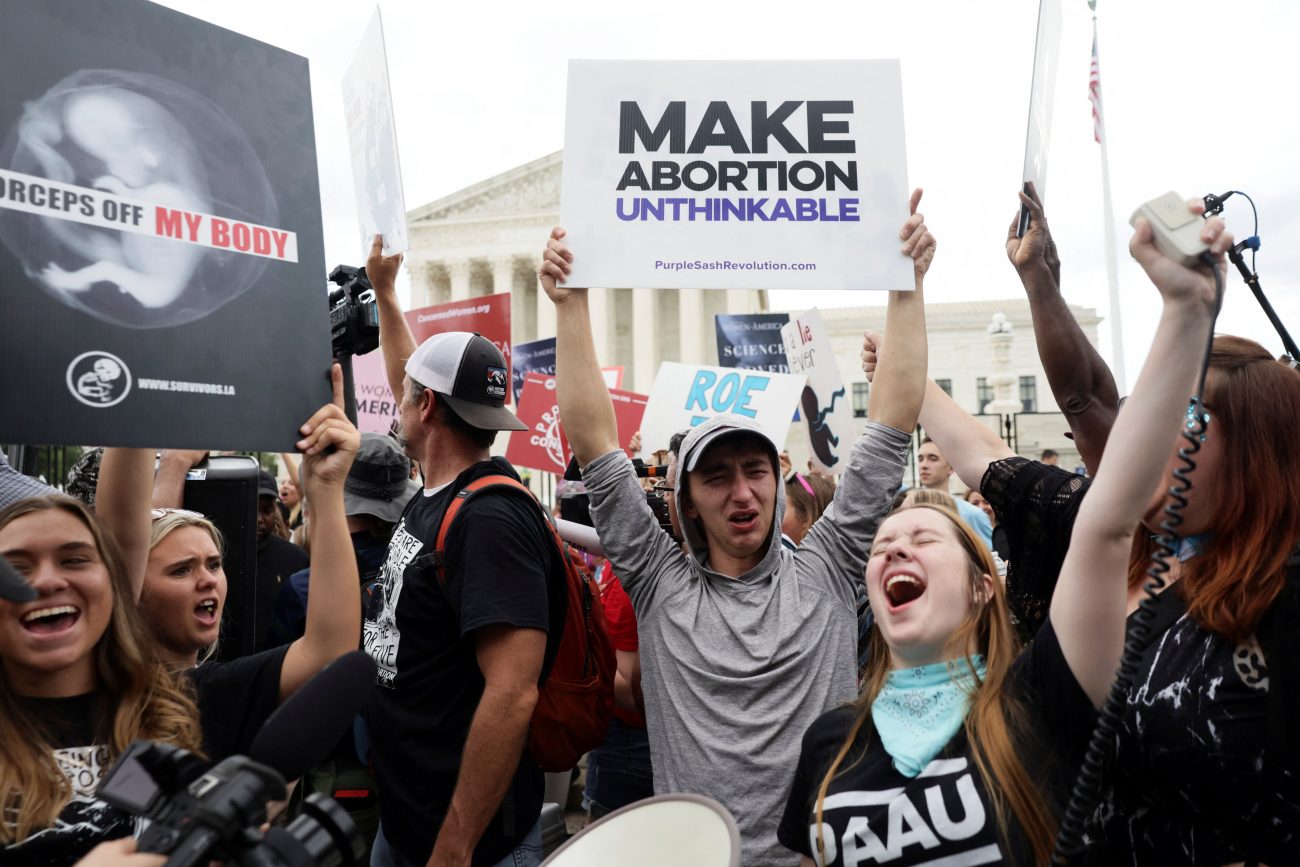WASHINGTON (CNS) — In a 6-3 decision June 24, the U.S. Supreme Court overturned its nearly 50-year-old decision in Roe v. Wade that legalized abortion in this country.
The court’s 213-page ruling in Dobbs v Jackson Women’s Health Organization was not totally unexpected due to the leak of an opinion draft a month earlier. The ruling emphasizes that there is no constitutional right to abortion in the United States.
The Dobbs case focused on an abortion clinic in Mississippi opposed to the state’s law banning abortion after 15 weeks of pregnancy.
[hotblock]
The court’s reversal of its longstanding abortion ruling brings abortion policy decisions to the state level. At least half of states plan to ban or restrict abortions with this decision in place.
“We hold that Roe and Casey must be overruled,” Justice Samuel Alito wrote in the court’s opinion. Casey v. Planned Parenthood is the 1992 decision that affirmed Roe.
Alito was joined by Justices Clarence Thomas, Neil Gorsuch, Brett Kavanaugh and Amy Coney Barrett.
Chief Justice John Roberts, in a separate opinion, said he agreed with the majority that the Mississippi abortion restriction should be upheld, but he said the court should not have overturned its Roe decision.
Alito, writing for the majority, said: “The Constitution makes no reference to abortion, and no such right is implicitly protected by any constitutional provision, including the one on which the defenders of Roe and Casey now chiefly rely — the Due Process Clause of the 14th Amendment.”
U.S. Catholic bishops who have supported a reversal of Roe immediately reacted positively to the court’s decision that comes at the end of this year’s term.
The U.S. Conference of Catholic Bishops called the decision a “historic day in the life of our country, one that stirs our thoughts, emotions and prayers.”
“We pray that our elected officials will now enact laws and policies that promote and protect the most vulnerable among us,” said the June 24 statement by Los Angeles Archbishop José H. Gomez, USCCB president, and Baltimore Archbishop William E. Lori, chairman of the USCCB’s Committee on Pro-Life Activities.
“We give thanks to God for today’s decision … This just decision will save countless innocent children simply waiting to be born,” said the New York Catholic bishops in a statement shortly after the court’s opinion was released.
Philadelphia Archbishop Nelson J. Perez tweeted that the decision “affirms deep value inherent in human life.”
Protesters were outside the court when the ruling came down, as they have been for days, anticipating it. Those on both sides of issue were also at the court when the document first leaked.
The Dobbs opinion is similar to the leaked draft that called Roe “egregiously wrong from the start.”
Justices Stephen Breyer, Sonia Sotomayor and Elena Kagan wrote a joint dissent that said: “Whatever the exact scope of the coming laws, one result of today’s decision is certain: the curtailment of women’s rights, and of their status as free and equal citizens.”
They also noted that their dissent “with sorrow — for this Court, but more, for the many millions of American women who have today lost a fundamental constitutional protection.”
When the court announced last year that it would take this case, after considering it more than a dozen times since 2020, the justices said they would only review one of the three questions presented to them: “Whether all pre-viability prohibitions on elective abortions are unconstitutional.”
That point of viability — when a fetus is said to be able to survive on its own — was a key point in this case, because the Supreme Court has consistently ruled that states cannot restrict abortion before 24 weeks, or when a fetus could survive on its own.
A friend-of-the-court brief submitted by the USCCB stressed that abortion is not a right created by the Constitution and called it “inherently different from other types of personal decisions to which this court has accorded constitutional protection.”
Referring to the court’s major abortion decisions, the brief also warned that if the Supreme Court “continues to treat abortion as a constitutional issue,” it will face more questions in the future about “what sorts of abortion regulations are permissible.”
***
Follow Zimmermann on Twitter: @carolmaczim
PREVIOUS: Michigan center is among latest pro-life facilities vandalized across U.S.
NEXT: Supreme Court sides with coach in public school prayer case




Share this story